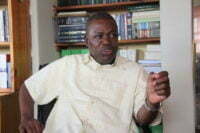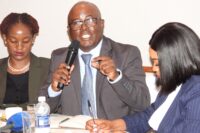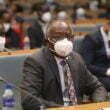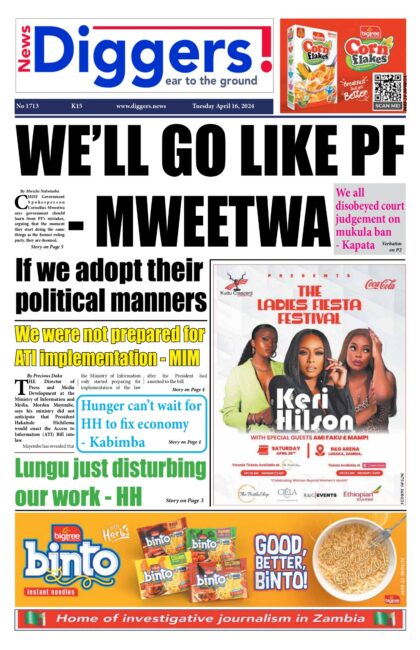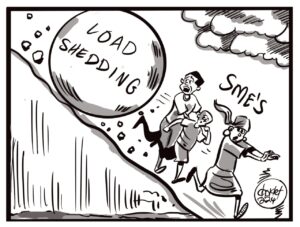Rainbow Party General Secretary Wynter Kabimba says the culture of borrowing must remain in 2017 while government tries to transform the economy from foreign investors into the hands of local entrepreneurs in 2018.
And Kabimba says Zambians want to listen to a leadership that encourages citizens to work hard and stand up for themselves now that the International Monetary Fund (IMF) has declared the country unworthy of borrowing anywhere in the world due to government’s insatiable appetite for loans.
Reflecting on Zambia’s economic performance for the year 2017, Kabimba observed that there was a culture of exclusive decision making in the PF administration which left out the voices of critical stakeholders.
“People who have done development studies will tell you that there is a very close interlink between good governance and economic development. And for you to achieve good governance as a country, you ought to make sure that the majority of your people participate in the political decisions that the country makes, that means those that are in government, those in opposition and civil society organisations must all work together because all these stakeholders are components of a good governance regime,” Kabimba said.
“But what have we seen in this country over the years, including 2017? We have continued with a culture of exclusive governance, governance is left to those that are in power to the exclusion of those that are out of power even though they are important components of the governance institutions and obviously what that leads to is loss of confidence in the government of the day by those that are excluded, who in this case happen to be the majority. What that leads to is slow economic progress because those that are excluded are not participating in the economic activities of the country.”
And Kabimba regretted that Zambia’s failure to transform its economy from foreign investors into the hands of local entrepreneurs cost the country IMF aid.
“For example, you have a domestic debt of about K52 billion, this is money owed by government to Zambian enterprises, the small scale business people who are in the majority. This is money that is tied up in government debt by suppliers of goods and services to government, this is money which is out of circulation. So that in itself holds back your economic progress. Secondly, we do not know the exact figure for our external debt but if we are to go by what the IMF said, it is $30.3 billion or $30.5 billion which is a colossal amount of money to be owed by a small economy like ours, which is inactive because of its exclusion of the majority of participants,” he said.
“If you look at the contractors that are being awarded contracts everyday, they are just a handful. So if you go with that debt of $30.5 billion, it is no wonder that the IMF has said we are not credit worthy, they can’t give us a bail out because we don’t have the capacity to pay back. This is what we have always said as the Rainbow Party that if you are going to have an economy which is dependent on borrowing, an economy which you have not transformed from foreign investors into the hands of Zambians as major actors, that economy cannot deliver.”
Meanwhile, Kabimba said PF leaders should learn from the mistakes they made in 2017.
“We have to learn from the past mistakes. I have always argued, this idea where we have to speak about borrowing with pride must come to end. Each time the minister [of Finance] is attending meetings in Washington DC with IMF, it becomes a major news item on ZNBC. That culture must come to an end going into 2018. We should not be proud of debts or handouts from donors. We should look inwards and ensure that we, as Zambians, begin to work hard and become productive so that the aggregates of the productivity of each citizen becomes the bedrock of our economy. That is the only way we are going to uplift our people from poverty. Otherwise poverty has become a cycle in this country and it can’t be addressed through borrowing. You have to address poverty through economic production which is not there,” said Kabimba.
“So there are a lot of things that 2017 can teach us if we wanted to learn and make Zambia a better country. But now that the IMF is not able bail us out, we want to listen to a leadership that urges Zambians now to stand up and work, because if the IMF says that ‘you are not credit worthy’ then no one else will lend us money. All European countries are members of the IMF. America is a member of the IMF so if the IMF declares you as not being credit worthy then no body will lend you money and it means you are left on your own in the area of global economy.”





